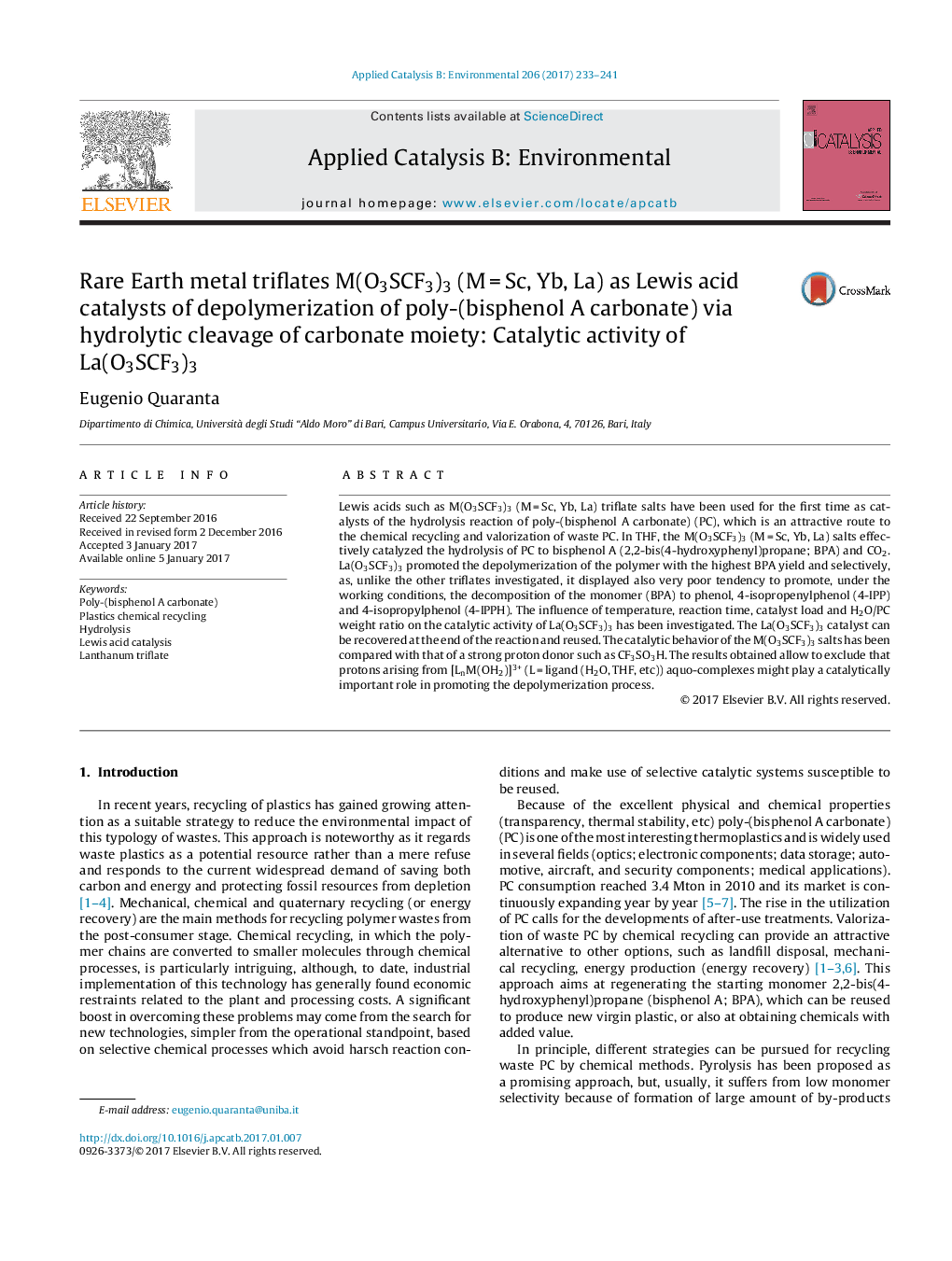| Article ID | Journal | Published Year | Pages | File Type |
|---|---|---|---|---|
| 6454671 | Applied Catalysis B: Environmental | 2017 | 9 Pages |
â¢Lewis acids (LAs) M(O3SCF3)3 (M = Sc, Yb, La) catalyze the hydrolysis of polycarbonate.â¢M(O3SCF3)3 (M = Sc, Yb, La) salts promote the cleavage of propylidene bridge of bisphenol A.â¢La(O3SCF3)3, the weakest of the used LAs, promotes polycarbonate hydrolysis selectively.â¢La(O3SCF3)3 catalyst can be recovered at the end of the reaction and reused.â¢[LnM(OH2)]3+ complexes do not play a catalytically important role as H+ donors in the process.
Lewis acids such as M(O3SCF3)3 (MÂ =Â Sc, Yb, La) triflate salts have been used for the first time as catalysts of the hydrolysis reaction of poly-(bisphenol A carbonate) (PC), which is an attractive route to the chemical recycling and valorization of waste PC. In THF, the M(O3SCF3)3 (MÂ =Â Sc, Yb, La) salts effectively catalyzed the hydrolysis of PC to bisphenol A (2,2-bis(4-hydroxyphenyl)propane; BPA) and CO2. La(O3SCF3)3 promoted the depolymerization of the polymer with the highest BPA yield and selectively, as, unlike the other triflates investigated, it displayed also very poor tendency to promote, under the working conditions, the decomposition of the monomer (BPA) to phenol, 4-isopropenylphenol (4-IPP) and 4-isopropylphenol (4-IPPH). The influence of temperature, reaction time, catalyst load and H2O/PC weight ratio on the catalytic activity of La(O3SCF3)3 has been investigated. The La(O3SCF3)3 catalyst can be recovered at the end of the reaction and reused. The catalytic behavior of the M(O3SCF3)3 salts has been compared with that of a strong proton donor such as CF3SO3H. The results obtained allow to exclude that protons arising from [LnM(OH2)]3+ (LÂ =Â ligand (H2O, THF, etc)) aquo-complexes might play a catalytically important role in promoting the depolymerization process.
Graphical abstractDownload high-res image (94KB)Download full-size image
